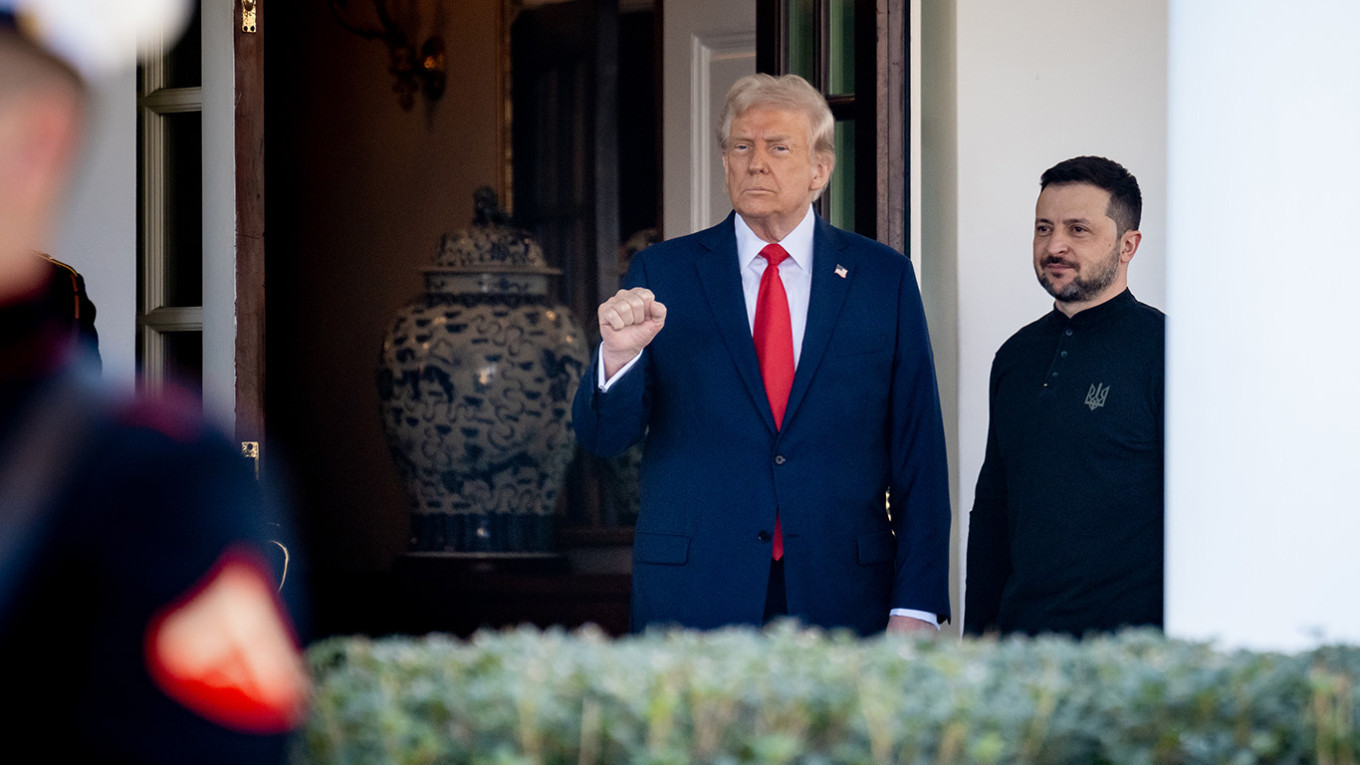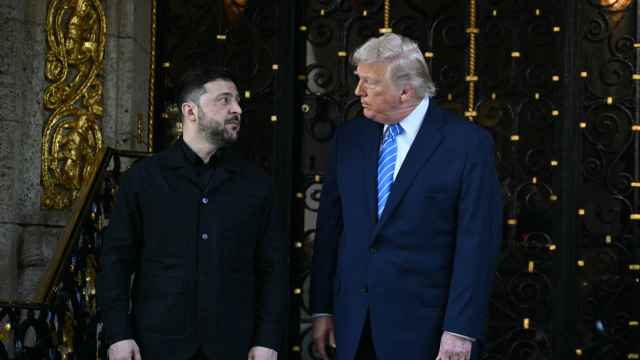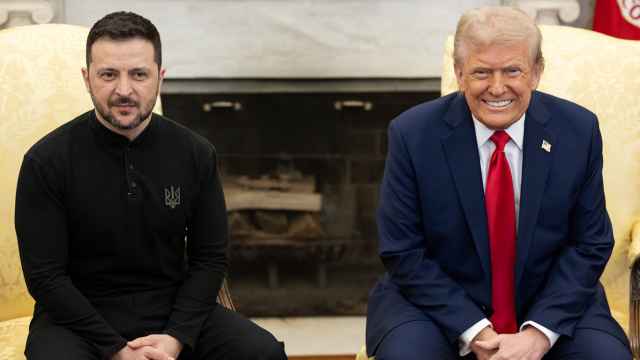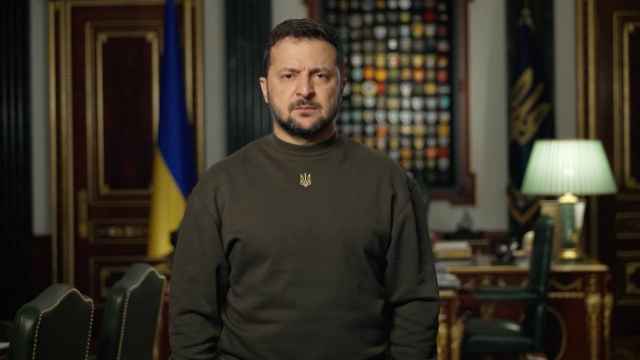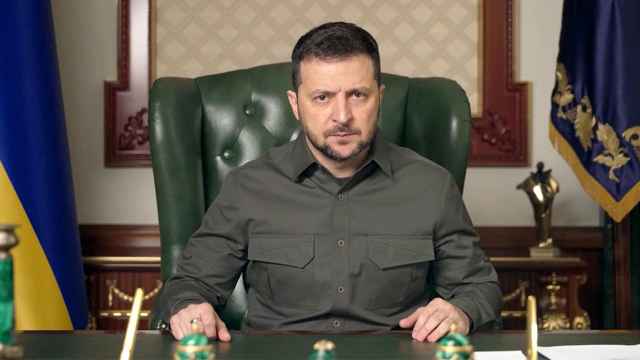Ukrainian President Volodymyr Zelensky said Thursday a landmark minerals deal with the United States offered "equal" benefits for both sides even though the accord offered no concrete security guarantees for Kyiv.
Russia later launched a large-scale drone attack on the central industrial city of Zaporizhzhia, ripping open a Soviet-era residential building and wounding 14 people after Zelensky urged allies to step up pressure on Moscow to end its invasion.
The agreement, which has taken months to negotiate, would see Washington and Kyiv jointly develop and invest in Ukraine's critical mineral resources.
The agreement "changed significantly" during negotiations, Zelensky said in an address.
"Now it is a truly equal agreement that creates an opportunity for quite significant investment in Ukraine."
"There is no debt in the deal, and a fund — a recovery fund — will be created that will invest in Ukraine and earn money here," he added.
Kyiv and Washington planned to sign the agreement in February, but a White House clash between U.S. President Donald Trump and Zelensky derailed the talks.
Ukraine hopes the deal will pave the way for the United States to give security guarantees as it seeks to safeguard against future Russian attacks following Moscow's invasion.
The agreement still needs to be ratified by Ukraine's parliament.
Trump initially described the arrangement as "money back" for the wartime aid Ukraine received under his predecessor Joe Biden.
Ukraine says the agreement is not linked to any past "debt," however, and U.S. officials stressed that the accord signaled U.S. support for Ukraine.
'Be quiet and negotiate'
Under the deal, Ukraine and the United States will establish a joint Reconstruction Investment Fund.
Profits from the agreement will be invested exclusively in Ukraine for the first 10 years, after which profits "may be distributed between the partners," Kyiv said.
The new agreement does not give any specific U.S. security commitments, but Washington argues that boosting its business interests in Ukraine will help deter Russia.
Moscow has kept up its attacks on Ukraine unabated, despite Trump's efforts to broker a ceasefire.
Zelensky said Ukraine's allies should ramp up "pressure on Russia to force it to be quiet and to negotiate" hours after the deal was agreed and Russia launched deadly aerial attacks across the country.
French Foreign Minister Jean-Noel Barrot told AFP on Thursday, after Washington talks with U.S. Secretary of State Marco Rubio, that the European Union is preparing a 17th round of sanctions against Russia, describing President Vladimir Putin as the "sole obstacle" to peace in Ukraine.
A bipartisan group of U.S. senators led by Republican Lindsey Graham and Democrat Richard Blumenthal also last month proposed legislation that would impose sanctions on countries friendly to Moscow if it disrupts efforts to end the war.
Despite diplomatic efforts to end the grinding war launched by the Kremlin more than three years ago, Russia rejected a 30-day ceasefire proposed by the United States and Ukraine in March, demanding a halt in Western military aid for Kyiv.
The United States warned that this week would be "critical" in determining whether it would walk away from efforts to broker an end to the conflict.
U.S. Vice President J.D. Vance said Thursday that he was "optimistic" about securing a halt to fighting but said it would ultimately be up to Kyiv and Moscow.
"They're the ones who have to take the final step," he said in comments carried on Fox News.
And Secretary of State Marco Rubio said it was possible the United States could walk away from the peace process given "we've got so many — and I would argue — even more important issues going on around the world."
"I would say what's happening with China is more important in the long-term for the future of the world," he said Thursday on Fox News.
Putin has declared a surprise three-day truce from May 8-10, coinciding with Moscow's large-scale celebrations marking the 80th anniversary of World War II Victory Day.
A Message from The Moscow Times:
Dear readers,
We are facing unprecedented challenges. Russia's Prosecutor General's Office has designated The Moscow Times as an "undesirable" organization, criminalizing our work and putting our staff at risk of prosecution. This follows our earlier unjust labeling as a "foreign agent."
These actions are direct attempts to silence independent journalism in Russia. The authorities claim our work "discredits the decisions of the Russian leadership." We see things differently: we strive to provide accurate, unbiased reporting on Russia.
We, the journalists of The Moscow Times, refuse to be silenced. But to continue our work, we need your help.
Your support, no matter how small, makes a world of difference. If you can, please support us monthly starting from just $2. It's quick to set up, and every contribution makes a significant impact.
By supporting The Moscow Times, you're defending open, independent journalism in the face of repression. Thank you for standing with us.
Remind me later.


